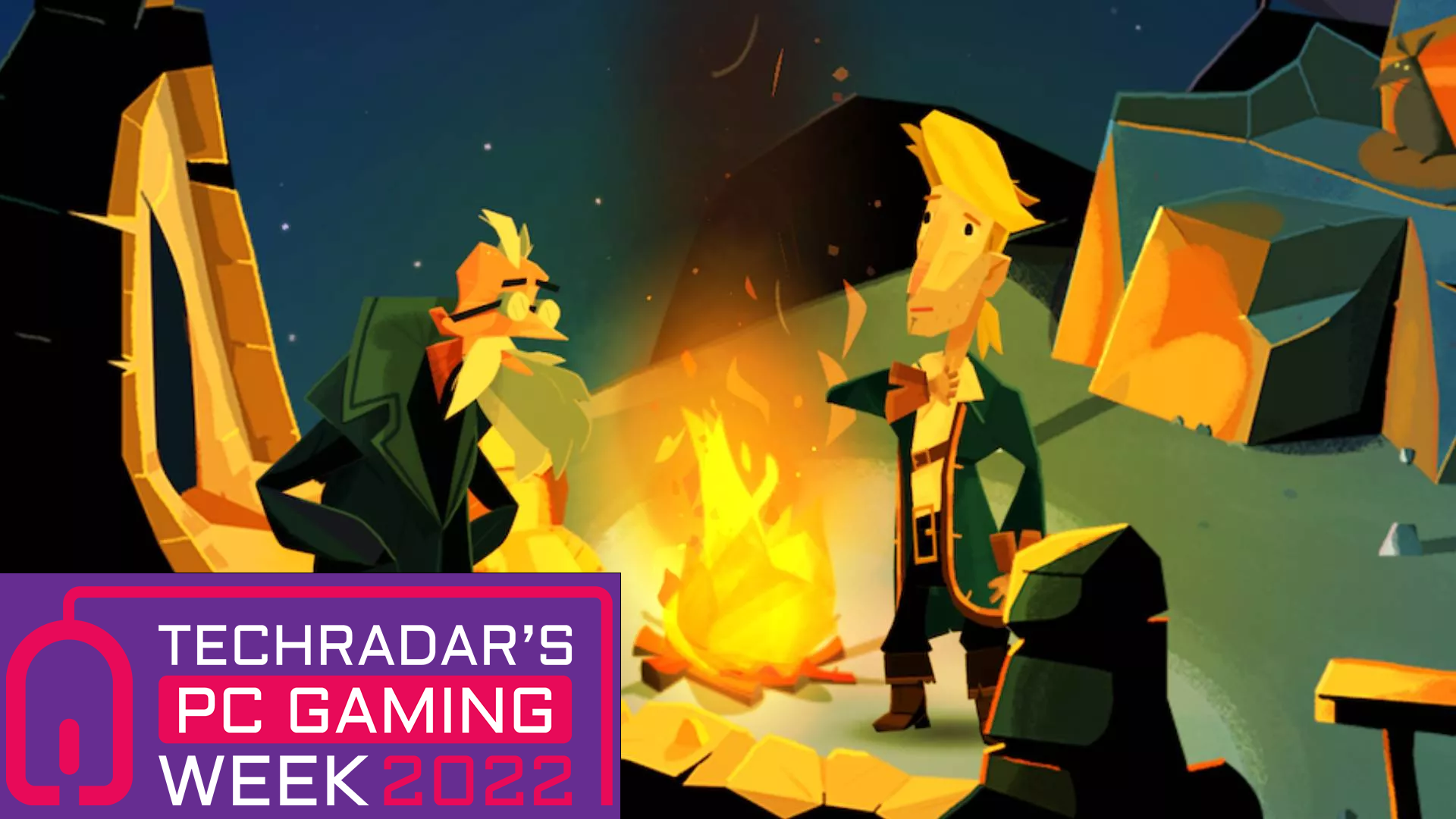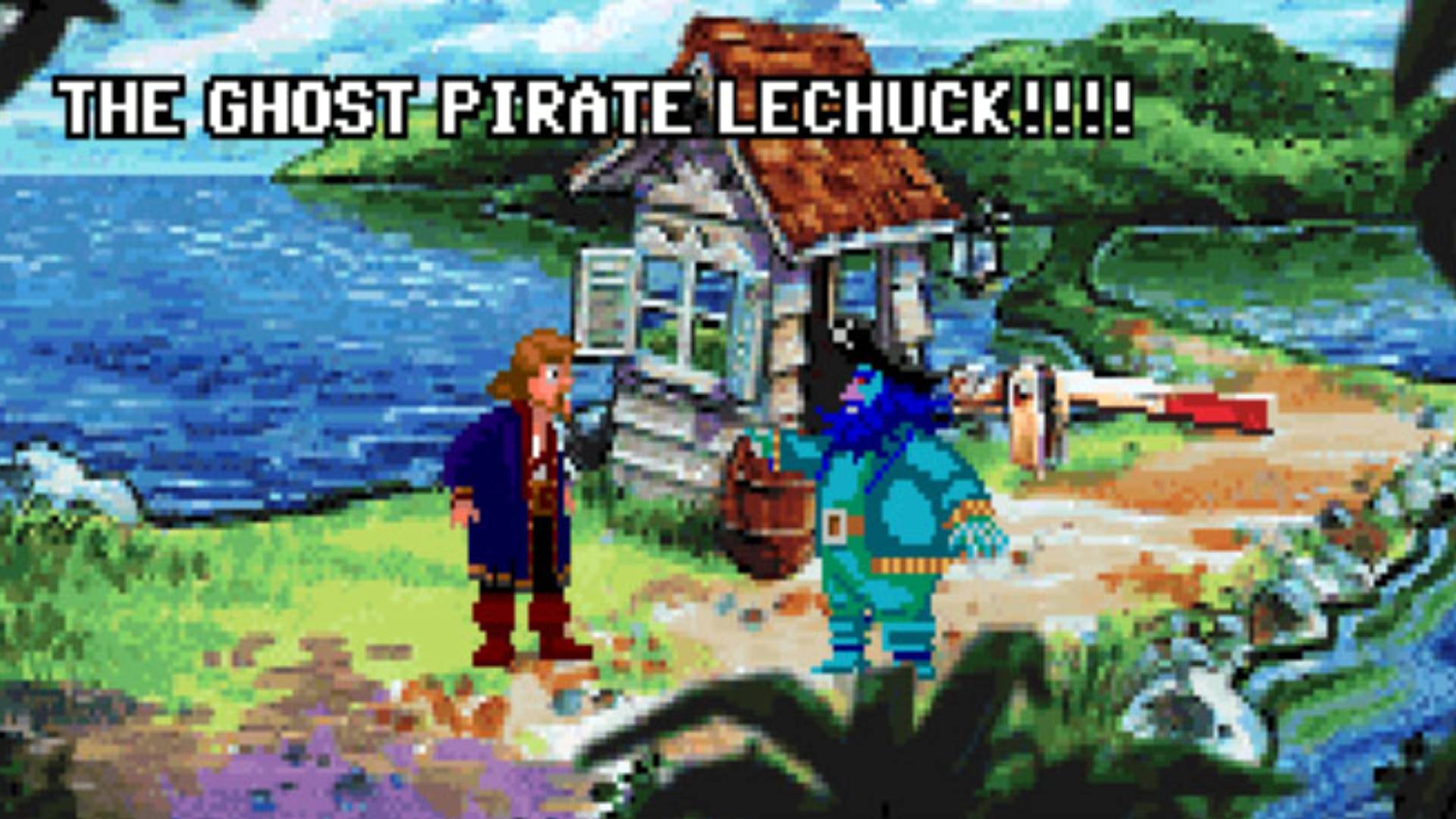How Ron Gilbert and Humongous Entertainment gamified education
Making recreational learning, fun

My school's top hits were structure and order. I struggled to focus on the Times New Roman worksheets as buzzing fluorescent lights prickled the inside of my skull, so I was often told off for talking or moving ahead of the work. Margins became a tapestry of scribbles.
“More people have played Putt-Putt, Freddi Fish or Pajama Sam than anything else I've ever done, including Monkey Island and Maniac Mansion, " Game Designer Ron Gilbert wrote on Twitter in 2015. I am one of those people. But now that I’m more familiar with the magic of Monkey Island, it’s clear how the series’ disarmingly sweet humor and no-pulled-punches puzzles laid the groundwork for the edutainment games I loved in my childhood.
However, when loading up 'Putt-Putt Saves The Zoo' back home, I was reminded that despite my teacher's affinity for linear problem-solving, I was the one driving the proverbial purple brain car.
By giving the answer, the question, and how to solve it, the traditional rote memorization style of education didn’t leave much to the imagination. But Humongous Entertainment’s games wanted me to search every corner, upturn every rock, and above all, go the wrong way.
Puzzling through the School years
“School is often based not on problem-solving, which perforce involves actions and goals, but on learning information, facts, and formulas that one has read about in texts or heard about in lectures,” writes Professor and Author James Paul Gee in his book The Anti-Education Era: Creating Smarter Students through Digital Learning. “It is not surprising, then, that research has long shown that a student’s doing well in school, in terms of grades and tests, does not correlate with being able to solve problems.” It’s interesting to consider this research alongside the popularity of Humongous Entertainment.
Games like Spy Fox and Pyjama Sam are jam-packed with opportunities to learn information but also place a heavy focus on dynamic problem-solving. This provided kids such as myself with the ability to solve Gilbert and co’s puzzles whilst also gaining the tools to overcome many similar but different problems in the future. It’s a far cry from the more rigid rote method, where there is only one correct, consistent methodology. It sounds simple, but it’s hard to quantify how beneficial this approach could be in early learning.
In the nineties and early noughties, digital education games were everywhere. Even Nintendo gave teaching a go with Luigi’s globe-trotting antics in 1993’s much-maligned Mario is Missing. But despite this ocean of competition, Humongous thrived. The debate over how fun an educational game should be raged on, but the real competition was in getting kids to play them. If you ask adults who grew up during this boom, it’s clear that this contest was being won over and over again by Gilbert and the team.
Sign up for breaking news, reviews, opinion, top tech deals, and more.
Point and Click for the next generation

The LucasArts point-and-clicks Gilbert had previously worked on weren’t exactly adult, but they weren’t very suitable for children due to the existence of violence, niche references and certain themes. By converting this genre into an educational format, Humongous opened the door so that children like me could also take part in these iconic adventures, learning valuable skills along the way.
According to Gilbert, part of the inspiration for the studio was watching a five-year-old play Monkey Island. The kid couldn’t read, so had no concept of the game’s story, but was still having so much fun and spent hours exploring the world, opening doors, triggering animations and talking to characters. “That’s when I thought about, well, maybe I should just make adventure games for kids. And not dumbed down storybooks, but real adventure games with actual puzzles and characters,” Gilbert said in a 2017 talk at Google.
Of course, this involved maintaining some mechanical features from the older point-and-clicks, like chained puzzle systems. Chained puzzles require players to fulfill a series of smaller tasks that all lead toward a major goal. Guybrush’s blossoming disguise quest in the first act of Return to Monkey Island is a great recent example. For the edutainment games, Gilbert opted for the same concept, just with shorter chains to solve.
In Freddie Fish 2: The Case of the Haunted Schoolhouse, players come into conversation with a tetchy eel in need of some lunch. The eel is in the way of an item players need to progress, so naturally, sea snacks are in order, and in an area nearby, players can find a fishing line with a ‘Worm Doodle’ attached to a hook. As an adult, it’s easy to make that connection, but because exploration was non-linear, kids got the chance to have that eureka moment without anyone lurking over their shoulder, tapping on their watch and asking for the answer. And let’s be clear, that one might sound easy, but as someone who recently struggled for nearly half an hour with the mosaic puzzle in Freddi Fish 2, I can attest that Humongous Entertainment games have the capacity to confound players of all ages.
Humongous Entertainment had an amazing run of hits before the studio’s unfortunate decline in the mid-2000s. Luckily, these classics have been made available on modern systems all the way up to the Nintendo Switch if you wish to give them a go. They even work great on Valve’s Steam Deck with a little bit of tinkering. But for me, the nature of how they play is the real home run. Kids with developing minds were given the chance to take control and explore their independence in the form of immersive, lovingly-crafted problem-solving adventure games. It’s no doubt that this was helpful. The kids that grew up playing them, myself included, will reap those rewards evermore.
Searching online, the profound impact of Humongous Games is easy to chart, with many former players keen to recount their fond memories with Putt Putt and the gang. On the /r/PatientGamers subreddit, u/TrandaBear sends an impassioned plea for parents who may have grown up with Humongous Entertainment games to introduce their children to the catalog. “The presentation has not suffered, the voice acting is surprisingly solid … the audio is crisp, the instructions/hints are clear, and the playtime lasts long enough to hold a young child's attention, compels them to keep going, but knows when to end,” they said. “I got an emphatic "again, again!" seal of approval.”